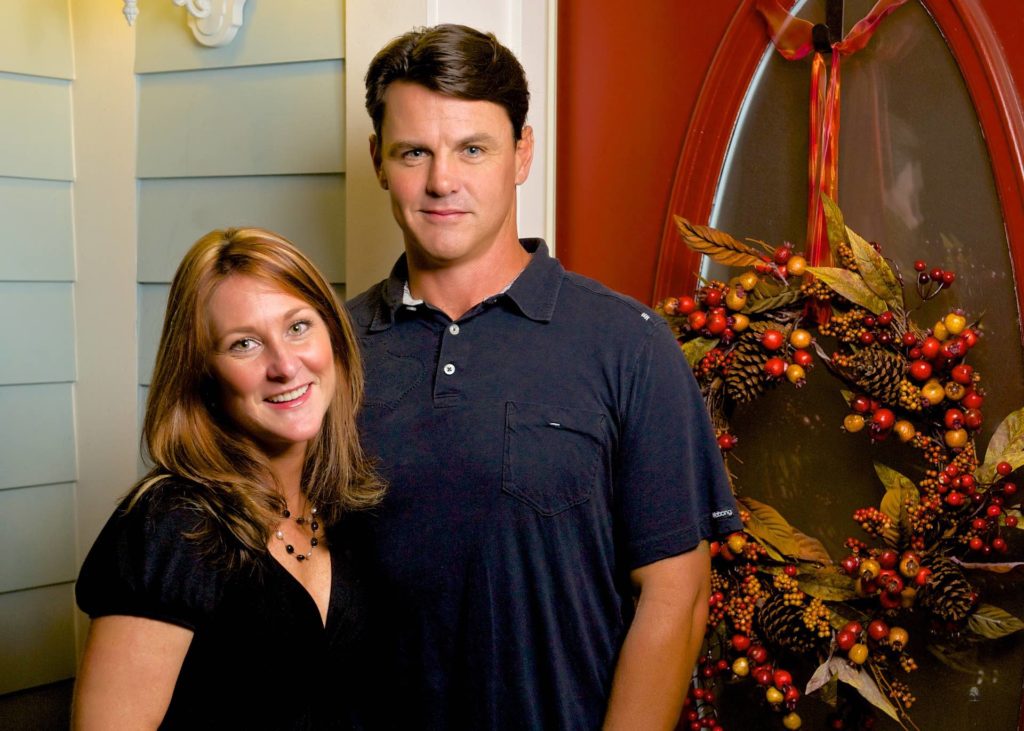
The buzzword for love in the modern age is balance. But while the concept makes perfect sense in theory (e.g. prioritizing “us” time and allowing space for individual growth), actually figuring out how to achieve that healthy interdependent balance can prove challenging to many couples. Central Florida relationships expert Rick Brown (who has been married for 37 years) says the secret is recognizing the difference between healthy independence versus “us time” avoidance. Winter Park couple, Chrissy and Michael Martin, who have been married for 16 years, agree. “We’ve developed the ability to get back to center quickly,” says Michael. “[Our relationship] is a constant coming back to that place.”
Change is Normal
The first thing to understand about healthy interdependence is that shifts and changes in your partner (and therefore, your relationship) are not only normal, but also inevitable. “No one really marries a real person,” says Brown. “We marry who we think someone is or who we want them to be. After a period of romance and settling in, our partner’s real self emerges and we begin to feel disillusioned. Most people don’t know how to handle that fully, so they “get busy” and distracted in everyday life until soon the couple are two ships passing in the night.”
Instead of viewing a partner’s shifts and changes as an obstacle breaking down the relationship, Brown encourages couples to “get curious” and see those changes as an opportunity. “When couples are falling out of love, that is the best opportunity for them to truly fall in love,” says Brown. “Get interested in discovering the real person.”
Brown likens the evolution of each individual person to chapters of a book: Some chapters are happy, some are sad; some are exciting, and some are full of struggle. Each day, seek to discover what chapter your partner is in. Let them share the story of their life with you.
The Martins’ relationship has seen its own share of shifting cycles, some fun and some downright challenging. Learning to lean into those shifts and adjust their relationship behaviors to accommodate each cycle has been a secret to their success. “Having infants was the hardest phase,” says Chrissy. “We each had to make the biggest concessions then to keep the relationship strong. Now our boys are much older, so we get to sneak off more for time that’s just us.”
Relationship Breakdown
The No. 1 problem in unhappy relationships, according to Brown, is lack of connection. “When you really listen and get past couples’ complaints of dissatisfaction,” says Brown, “what they are truly saying is they feel disconnected. Humans yearn for connection and, when it’s lacking, they will attempt to get that need met outside of the relationship (through work, kids, affairs, Facebook).”
The challenge then becomes knowing the difference between independence that is healthy rather than independence that is toxic. The litmus test, Brown says, is whether participating in an activity renews you and leaves you excited to return to the relationship or whether it serves as an escape from your partner or a means to alleviate feelings of emptiness and loneliness. If the behavior or activity increases your disconnection with your partner, that’s a sign that something is off.
For the Martins, making sure the other person isn’t left depleted by their solo-time activities is a deciding barometer. “If anything I do is at her expense, that’s not okay,” says Michael. “She shouldn’t feel punished so I can go do my own thing.” Michael loves to surf but only goes when doing so won’t double up stress or obligations for Chrissy. “We’ve also had to make hard choices and let go of friends who don’t contribute anything strong to our relationship,” says Chrissy. “You have to make hard choices and fight like hell to protect this [love] that you have.”
Rekindling Connection
If you are feeling disconnected in your relationship, Brown encourages couples to stop justifying the disconnecting behavior (i.e. I’m just so busy at work. The kids need all of my attention right now.) “We justify because it is easier than facing the challenge at hand,” says Brown. The key is remembering that shift and change in your relationship are inevitable. The first step back to each other is by getting curious. Begin to ask yourself: What interests my partner and why? What excites her? What delights him?
“Get interested,” says Brown. “Couples are great at blaming, analyzing, and criticizing, but what your partner needs is to feel heard, validated, and listened to. When connection begins, couples have more fun, more passion, and more affection.”
The Martins have placed that philosophy at the heart of their marriage. “We both know that ‘us’ is the common goal and comes first,” says Michael. “It’s a decision. And you keep it alive by being intentional in small ways.” For example, Michael will make a point of going back inside to kiss Chrissy goodbye if he forgets to on his way out the door. As a result, both feel fulfilled in the partnership and looked out for as individuals within the frame of their relationship. “When you put the us first,” says Chrissy, “and you both pour, without selfish ego, into the other, and never expect that pouring in to stop, you just end up so whole. And when you feel whole you don’t feel threatened by the other person evolving or growing.”





